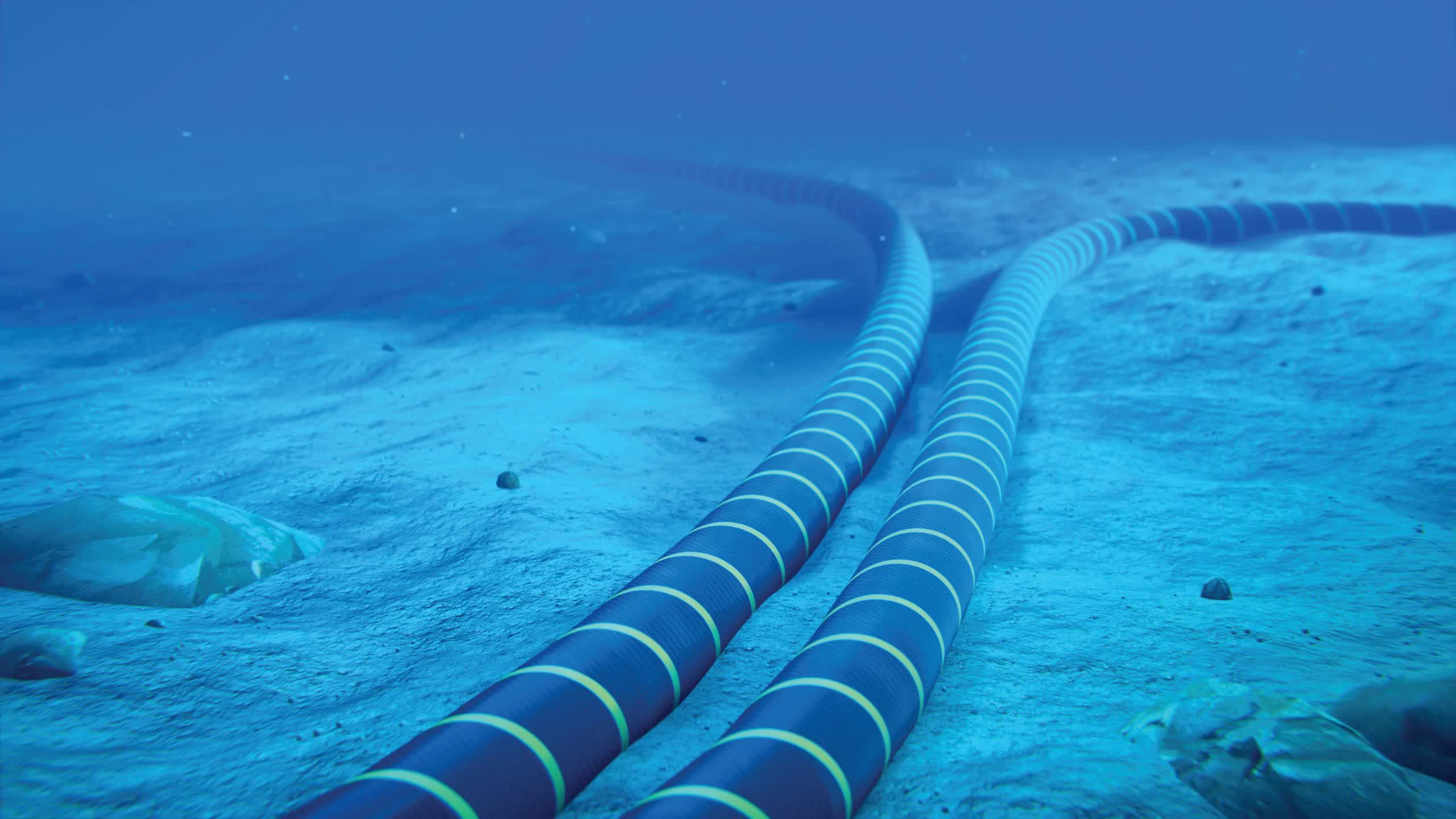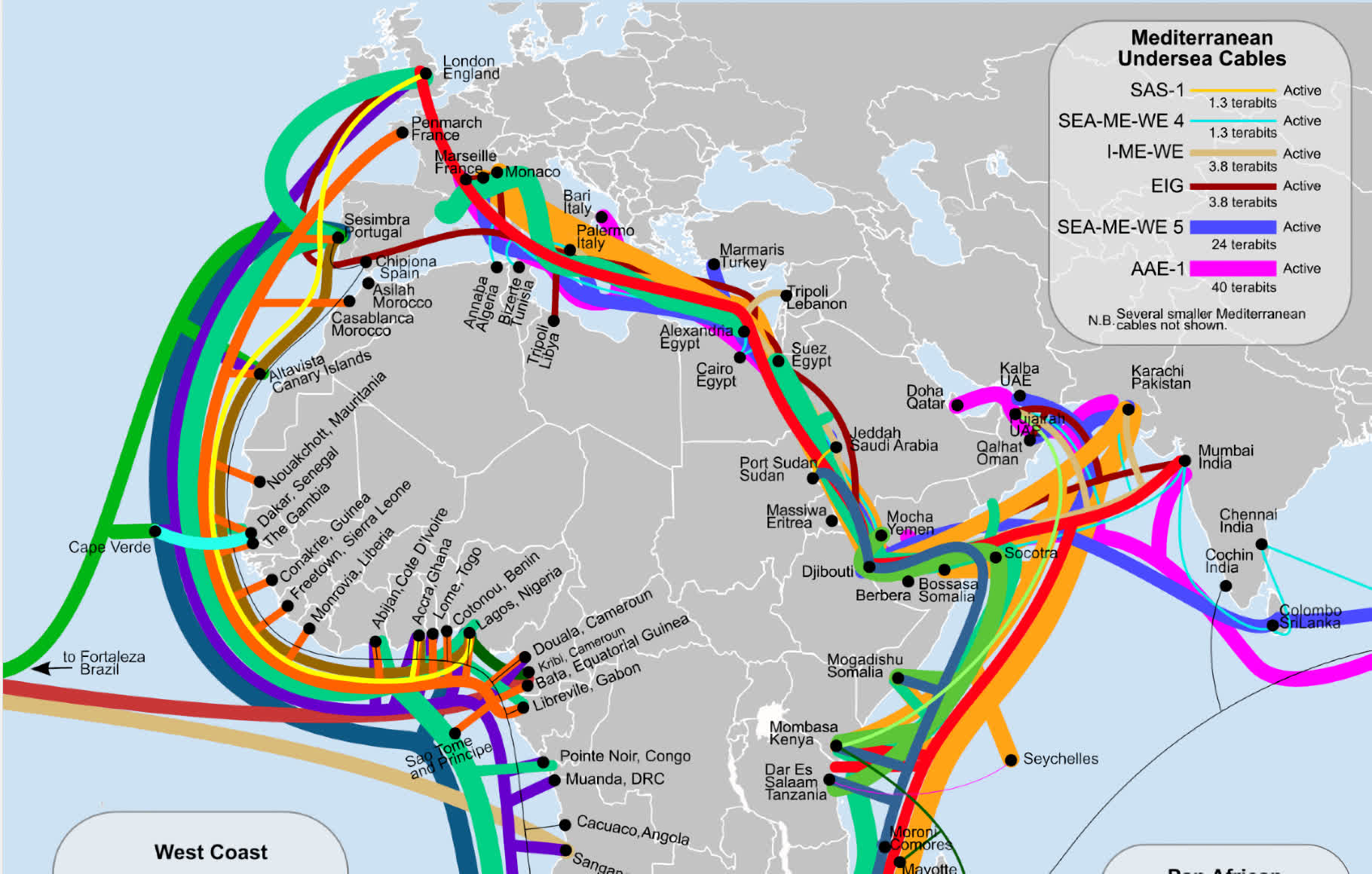What just happened? Undersea cable failures have left most of West and Central Africa without internet in a disruption that "points to something larger." Exactly what caused the cables to fail is unclear, but recent times have seen several groups sabotaging subsea fiber optic cables, including Yemini Houthi rebels attacking lines in the Red Sea.
African subsea cable operator Seacom said that its services on its West African cable system were down, reports The Guardian. The company added that customers who use the cables were being redirected to the Google Equiano cable.
"The redirection happens automatically when a route is impacted," Seacom said.
Isik Mater, director of research at NetBlocks, which monitors internet disruptions around the world, said the disruption "points to something larger [and] this is amongst the most severe." The company said the issue was likely at or near the subsea network cable landing points.
Ivory Coast, Liberia, Benin, Ghana, and Burkina Faso have felt the biggest impact, according to Netblocks.
Cloudflare also blamed multiple undersea cable failures in the region, writing that disruption was continuing in Gambia, Guinea, Liberia, Ivory Coast, Ghana, Benin, and Niger.
Microsoft's Azure status page states that multiple fiber cables on the West Coast of Africa – WACS, MainOne, SAT3, ACE – were impacted, which reduced total capacity supporting regions in South Africa.
There are 529 active submarine cables and 1,444 landings that are currently active or under construction, running over 807,000 miles globally. They carry around 90% of intercontinental data traffic and have become popular targets in recent years.
Last month brought news that Yemeni Houthi rebels were believed to have damaged undersea data cables in the Red Sea that link Europe to Asia, which carry around 17% of the world's internet traffic. Microsoft says these ongoing cuts are exacerbating the current problems in Africa; Seacom is still waiting on permits to start repairing its broken submarine cable in the Red Sea.
In October 2022, multiple undersea cables in the south of France were cut. There was speculation that Russia was to blame, wanting to punish countries for supporting Ukraine, but that claim has been disputed.
The European Commission recently warned that undersea cables need their security and resilience improved in light of increasing global tensions.

